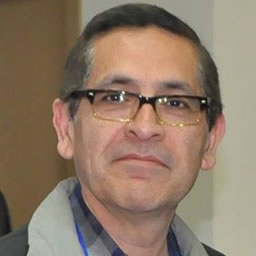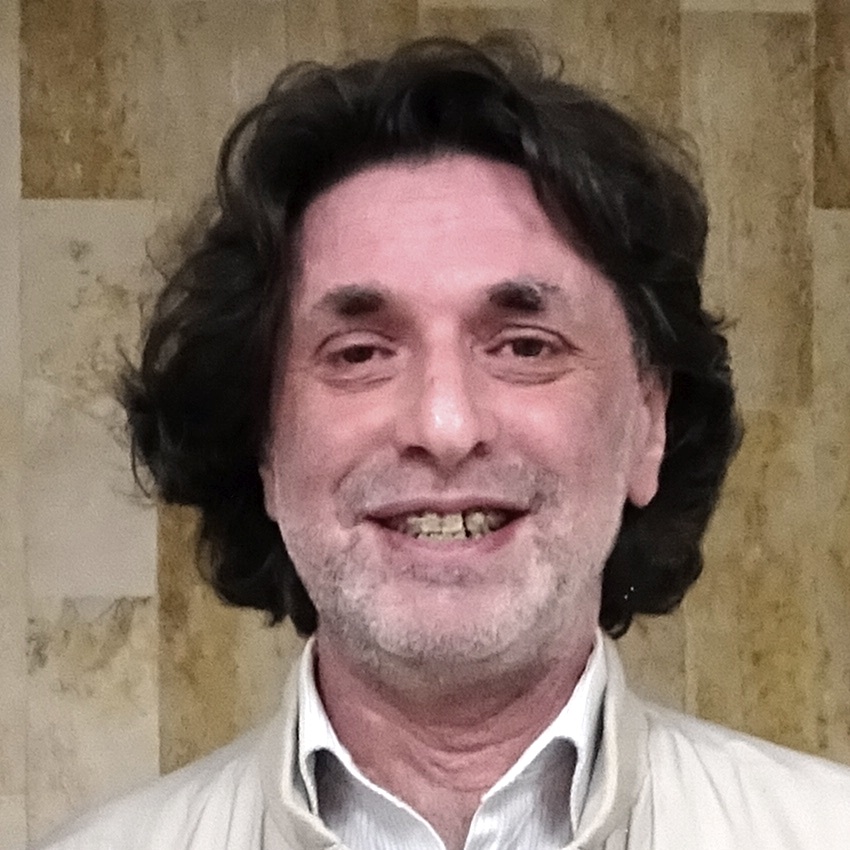Invited Speakers
Title: Bio-Inspired Optimization of Type-2 Fuzzy Logic Systems
 |
Spearker: Oscar Castillo, Tijuana Institute of Technology, Tijuana, Mexico |
Abstract: The design of Type-2 fuzzy logic systems is a complex task and in general achieving an optimal configuration of structure and parameters is time consuming and can rarely be found. For this reason the use of bio-inspired optimization algorithms offer a good hybrid solution to find near optimal design of type-2 fuzzy logic systems in real world applications. In particular, type-2 fuzzy control offers a real challenge because the problems in this area require very efficient and accurate solutions, as is the case for robotic applications. Another, area of application is type-2 fuzzy image processing. In this talk we present a general scheme for optimizing type-2 fuzzy systems with bio-inspired optimization techniques, like ant colony optimization, the chemical reaction algorithm, bee colony optimization and others.
Biography: Oscar Castillo holds the Doctor in Science degree (Doctor Habilitatus) in Computer Science from the Polish Academy of Sciences (with the Dissertation “Soft Computing and Fractal Theory for Intelligent Manufacturing”). He is a Professor of Computer Science in the Graduate Division, Tijuana Institute of Technology, Tijuana, Mexico. In addition, he is serving as Research Director of Computer Science and head of the research group on Hybrid Fuzzy Intelligent Systems. Currently, he is President of HAFSA (Hispanic American Fuzzy Systems Association) and Past President of IFSA (International Fuzzy Systems Association). Prof. Castillo is also Chair of the Mexican Chapter of the Computational Intelligence Society (IEEE). He also belongs to the Technical Committee on Fuzzy Systems of IEEE and to the Task Force on “Extensions to Type-1 Fuzzy Systems”. He is also a member of NAFIPS, IFSA and IEEE. He belongs to the Mexican Research System (SNI Level 3). His research interests are in Type-2 Fuzzy Logic, Fuzzy Control, Neuro-Fuzzy and Genetic-Fuzzy hybrid approaches. He has published over 300 journal papers, 7 authored books, 30 edited books, 200 papers in conference proceedings, and more than 300 chapters in edited books. He has been Guest Editor of several successful Special Issues in the past, like in the following journals: Applied Soft Computing, Intelligent Systems, Information Sciences, Non-Linear Studies, Fuzzy Sets and Systems, JAMRIS and Engineering Letters. He is currently Associate Editor of the Information Sciences Journal, Applied Soft Computing Journal, Granular Computing Journal and the IEEE Transactions on Fuzzy Systems. Finally, he has been elected IFSA Fellow and MICAI Fellow member last year.
Title: Deep Learning Architectures for Sentiment Analysis in Textual and Video Data
 |
Spearker: Alexander Gelbukh, Instituto Politécnico Nacional, Mexico City, Mexico |
Abstract: Sentiment analysis is a very active area of research that aims at identification of sentiment (positive or negative) or emotions expressed by humans, for example, in text or speech. Among its numerous practical applications, one can mention opinion mining in Internet and social networks, educational and healthcare applications, bullying and suicide prevention, and crime prevention. While the task of sentiment detection and classification seems easy, it meets various tough problems such as treatment of multiword expressions, identification of desirable facts, or sarcasm detection. Recently, deep-learning techniques have been shown to be especially effective on sentiment analysis tasks. In our research group, we experiment with deep-learning architectures for sentiment analysis and related tasks, in particular, sentiment analysis in video data, where the sentiment can be inferred from facial expressions, voice, and meaning of the speech. After an introduction in the area of sentiment analysis, I will present some of our recent results in this task.
Biography: Prof. Alexander Gelbukh holds MSc (mathematics) degree by the Moscow State “Lomonosov” University, Russia, and PhD (computer science) degree by the All-Russian Institute for Scientific and Technical Information, Russia. He is Research Professor and Head of the Natural Language Processing Laboratory of the Center for Computing Research of the Instituto Politécnico Nacional, Mexico, Honorary Professor of the Amity University, India, and Invited professor of the National University of Colombia. He has been Invited researcher of Waseda University, Japan, and Distinguished Visiting Professor of Chung-Ang University, Korea. He is a member of the Mexican Academy of Sciences and founding member of the Mexican Academy of Computing. He has been the President of the Mexican Society for Artificial Intelligence and of the Mexican Association of Natural Language Processing. His main areas of interest include computational linguistics and artificial intelligence. He is an author or co-author of more than 500 research publications, including 8 books, editor of more than 80 books, proceeding volumes, or journal special issues, and editor-in-chief or member of editorial board for more than 10 international journals. He is the founder and chair of the CICLing series of international conferences. He was a Chair, Honorary Chair, or Program Committee Chair of more than 50 international conferences. He has been advisor more than 25 PhD students. See details at www.Gelbukh.com.


